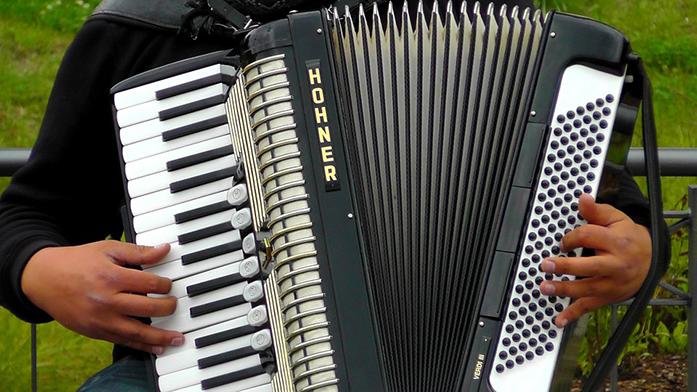By Tessa Solomon
After 20 years of writing and performing music, the members of Celtic folk group Wylde Nept can’t stress enough how unintentional their journey has seemed.
“We were just sitting around at a pub in the late-80s, listening to Celtic jams, when we realized we all had a familiarity and love for it,” said drummer George Curtis. “There was no concrete strategy.”
Strategy or not, Wylde Nept’s floor-stomping, accordion-bleating tunes have made a name for the group. It will play at 9 p.m. Saturday at the Mill, 120 E. Burlington St.
The Cedar Rapids natives are welcome faces at the Mill, regularly drawing a crowd of decades-long fans.
“We have fans wearing T-shirts that are older than Wes’ kid,” Curtis said and laughed, referring to one of Wylde Nept’s vocalists, Westan James.
Those fans were not won overnight, though, and the members’ early days were hectic as playing with the band became more of a career than a hobby.
“Things took off for us; we got more bookings to the point where we needed to get serious about it,” Curtis said. “But when we started out, I didn’t even have a drum. I rehearsed on a bucket.”
The days of the bucket — while reflected on fondly — are behind them. Curtis’s current drum was handcrafted in Ireland, commissioned from the same craftsman behind instruments for prominent Celtic groups such as the Chieftains.
The band’s hearty percussion is the foundation to its purposefully rousing sets.
“We want to do what appeals to us, but it can’t be completely like that,” Curtis said. “When you’re onstage, you have to connect with your audience. It can’t be all an inside joke.”
From the outside, people could generalize Celtic music as a genre of only pub sing-alongs, but they would be wrong. The tapestries of Ireland’s and Scotland’s history are woven in both lamenting and exuberant sounds.
“We liked the beautiful, low Celtic music,” James said. “But we didn’t want to be chamber music. We didn’t want it to be dusty, something that you take off the shelf.”
While history influences the band’s songs — the lyrics are rich with rebellion and strife — the music also evokes a joyful sense of the present.
“We have songs that are interactive,” Curtis said. “So instead of being a museum piece, we want it to be very much alive. We love history, but we don’t want to become history.”
The Mill is critical in the band’s history. In the early days, when the band was performing for free around the region to gain exposure, playing a show in Iowa City proved pivotal in the evolution of its sound.
“The owner of the Mill at the time told us we should ask for what we’re worth,” Curtis said. “He told us we could go for something more ambitious. It kicked us out of the safety zone.”
That moment was a turning point, one that would always be linked to the Burlington venue.
“The Mill is like a second home. Even though the crowd is constantly changing with students … it always feels comfortable there,” James said. “It’s always a happy crowd.”



